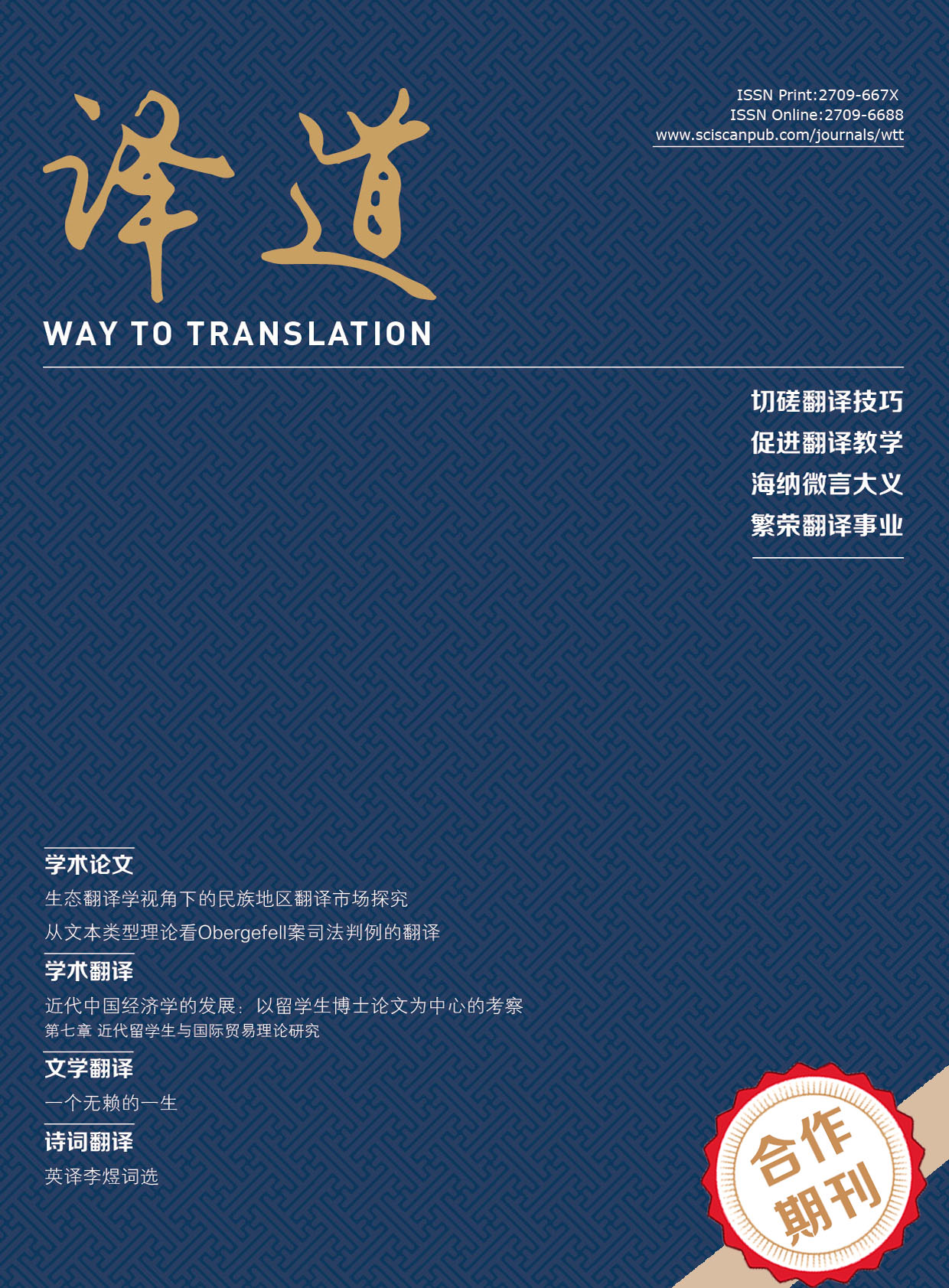免费订阅世刊出版平台最新发表资讯
情感表达与翻译再现: 语用学视角下《东方快车谋杀案》的情感翻译策略
Translation and Emotional Expression: An Analysis of Emotion Translation Strategies in the Chinese Translations of Murder on the Orient Express from a Pragmatic Perspective
- 作者: 崔雨晴
-
单位:
中南财经政法大学外国语学院,武汉
- 关键词: 《东方快车谋杀案》;语用学;情感表达;情感增强;翻译策略 Copyright
- Murder on the Orient Express; Pragmatics; Emotional expression; Emotional enhancement; Translation strategies
- 摘要: 本文从语用学角度分析阿加莎·克里斯蒂的《东方快车谋杀案》三个中文译本中的情感表达。情感表达即通过语言传达和体现作者和角色的情绪、感受以及心理状态的方式,在文学作品中不仅塑造了角色的性格和故事情节,也为读者提供了深入了解作品内涵的窗口。然而,学界尚缺乏关于该译文情感表达的翻译策略研究。本文从语用学相关理论如语境和礼貌理论出发,分析宋兆霖和镕榕(1979)、陈尧光(2006)、郑桥(2020)的译本,通过分析人物情感表达,揭示不同译者如何通过词汇选择增强情感效果。研究结果显示,宋兆霖和镕榕的译本在细节处理上更为精准和丰富,语境处理更加细腻,与其翻译经历与习惯有关。本文强调了译者处理情感细节的敏感性和语用学在文学翻译中的重要性,对提高文学作品的翻译质量具有积极意义。
- The paper analyzes the emotional expression in the three Chinese translations of Agatha Christie’sMurder on the Orient Express (1934) from a pragmatic perspective. Emotional expression depicts the emotions ofboth characters and the author. It significantly impacts character portrayal and story development, helping readersbetter understand the novel. However, a research gap still exits on the translation strategies regarding emotionalexpressions of this novel. Drawing on the context and politeness strategy, this study examines the three Chinesetranslations by Song Zhaolin and Rong Rong (1979), Chen Yaoguang (2006), and Zheng Qiao (2020), revealinghow different translators translate the emotional effects through words. It is indicated that Song Zhaolin and RongRong’s translation is more accurate and rich in details, with a more nuanced handling of context, which is relatedto his translation experience and habits. The research plays a vital role in the improvement of literary translationquality by reminding translators to use pragmatics to better understand the original work and translate it in moredetail.
- DOI: https://doi.org/10.35534/wtt.0401008
- 引用: 崔雨晴.情感表达与翻译再现: 语用学视角下《东方快车谋杀案》的情感翻译策略[J].译道,2024,4(1):58-66.














